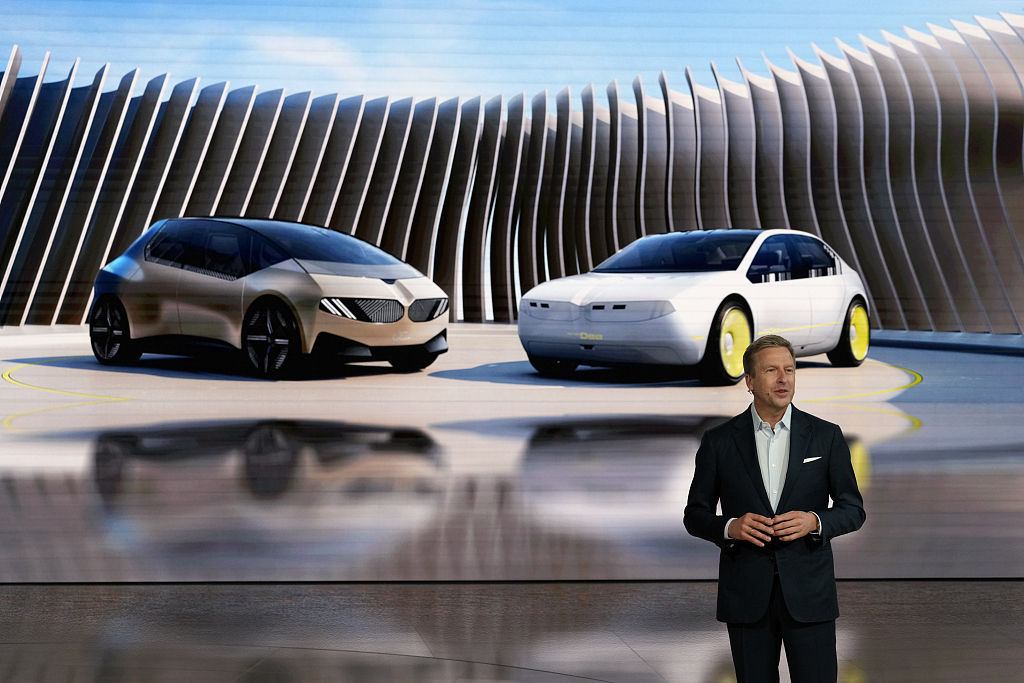German auto executives repeat opposition to European Union's probe

Executives of German carmakers as well as the German car association are repeating their opposition as the European Union threatens to impose punitive duties on China-made electric vehicles as early as July.
Oliver Zipse, chairman of BMW's board of management, said on Wednesday that the move could upend the bloc's Green Deal plan and harm German automakers which import cars made in China.
"You could very quickly shoot yourself in the foot," Zipse told reporters after the German premium automaker reported quarterly results.
The European Commission launched an investigation in October into whether fully-electric cars manufactured in China were receiving distortive subsidies and warranted extra tariffs.
The probe is due to conclude by November, but the EU could impose provisional duties in July, according to Reuters.
Zipse said on Wednesday that BMW and other automakers have "bilateral dependencies not only on the final product but on the component side and raw material side".
Imposing duties could backfire as new EU carbon dioxide emission standards that will require more EVs — that are reliant on Chinese battery materials — kick in from 2025.
"There will be no single car in the EU without components from China," Zipse said.
Zipse's latest warnings came days after he told China Daily in late April that BMW is "not a fan of the investigation", adding that "it is not necessary".
He said most of the EVs imported into Europe from China are from non-Chinese carmakers.
"So if you look like that, BMW is a Chinese company, because we are exporting vehicles from China to Europe."
"We should all work on reducing trade barriers, not increasing them, because the majority of tests we have in the world have to be done together," he said.
Ola Kaellenius, chairman of Mercedes-Benz's board of management, has warned against raising tariffs as well.
"My suggestion to policymakers was, if anything, lower it, don't raise it," he told China Daily at the 2024 Auto China.
"Let competition play out," said Kaellenius, adding that the company is "pro-free trade and a level playing field".
Also at the 2024 Auto China, Hildegard Mueller, president of the German Association of the Automotive Industry, or the VDA, said the EU's measures against Chinese EVs such as additional tariffs would not solve the challenges facing the European automotive industry.
Mueller gave a similar warning to the EU in an interview with German newspaper Welt am Sonntag earlier in April.
Mueller told China Daily that the EU's intentional trade barriers would quickly have a negative effect. "What is needed instead is an active industrial strategy, including an active trade policy," she said.
The VDA calls for an open and fair market, where any form of protectionism should not exist, said Mueller.
Mueller added that China and Germany are important to each other's economic development.
The VDA's statistics show that there are around 5,000 German companies operating in China, which have created more than 1.5 million jobs in the country.
Of them, those in the automotive sector rank first in terms of investment in China. Meanwhile, one out of six vehicles on Chinese roads bears a German marque. In 2023, German carmakers sold 3.8 million vehicles in the country.
Mueller said China and Germany are not only partners but competitors, especially in the automotive industry, but such competition makes the industry more dynamic and innovative.
Reuters contributed to this story.

